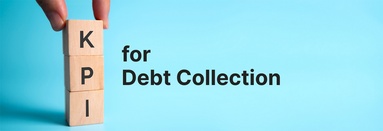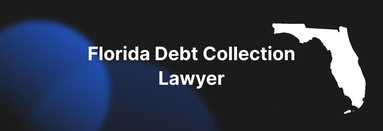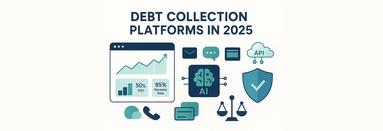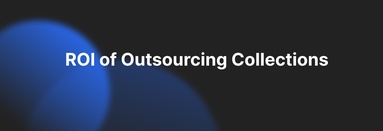How to Train Your Internal Team to Handle Early-Stage Collections
Updated November 20th 2025

Table of Contents
- The Financial Ripple Effects of Delayed Payments
- Building a Strong Foundation for Internal Collections Training
- Essential Skills Your Team Must Master
- Implementing a Structured Collections Workflow
- Technology & Tools That Strengthen Early-Stage Collection Efforts
- Training Through Real-World Scenarios
- Monitoring Performance and Providing Continuous Coaching
- When Internal Teams Should Transition Accounts Externally
- How Retrievables Helps Teams Manage Early-Stage Collections Efficiently
- Frequently Asked Questions (FAQs)
- Conclusion
Early-stage collections play a critical role in protecting your company’s cash flow and keeping operations running smoothly. When customers fall behind, even by a few days, it can ripple through your entire financial ecosystem—affecting payroll, vendor payments, investment opportunities, and long-term planning. For entrepreneurs, business owners, and enterprise leaders, building a strong internal team to manage early-stage collections isn’t just good practice—it’s a strategic necessity.
The Financial Ripple Effects of Delayed Payments
Late payments rarely happen in isolation. They compound over time, leading to increased Days Sales Outstanding (DSO), unpredictable revenue streams, and operational bottlenecks. When your internal team is properly trained, they can identify potential risks early, recover payments quickly, and maintain positive customer relationships. Effective early-stage collections improve forecasting accuracy, enhance budgeting, and strengthen financial resilience during slow seasons or economic disruptions.
Building a Strong Foundation for Internal Collections Training
Before you train your team, you need solid internal structures and systems. This foundation ensures consistency, reduces confusion, and gives employees the clarity they need to handle customer accounts confidently.
Creating Clear Internal Credit & Collections Policies
Establishing well-defined credit policies helps your team enforce standards uniformly. Your guidelines should include:
- credit terms for new and returning customers
- detailed communication protocols
- documentation requirements
- escalation thresholds
- dispute handling procedures
These policies act as guardrails, preventing errors and ensuring your collections practices remain fair, transparent, and compliant.
Setting Realistic KPIs and Success Metrics
Performance metrics keep your collections team focused and aligned with your organizational goals. Consider KPIs like:
- invoice aging reduction
- contact rate and success rate
- days to resolution
- call-to-collect ratios
- percentage of accounts escalated
When these metrics are clearly defined, your team knows exactly what they’re working toward.
Essential Skills Your Team Must Master
Successful early-stage collections require more than persistence. They demand communication expertise, emotional intelligence, financial understanding, and a customer-first mindset.
Communication Skills for Early-Stage Collections
Your team should be trained to communicate in a way that is:
- polite
- professional
- clear
- empathetic
- non-confrontational
The goal is to encourage quick payment while preserving the relationship. Tone matters. Every customer interaction shapes your brand image.
Using Scripts Without Sounding Scripted
Scripts are excellent training tools, but your team should learn to personalize them. Encourage them to:
- adapt scripts to the customer’s personality
- use natural language
- listen actively
- ask open-ended questions
This approach makes the conversation feel authentic rather than robotic.
Negotiation & Conflict Management Training
Not all customers will be cooperative. Your team must learn to:
- identify payment barriers
- handle objections calmly
- offer reasonable solutions
- negotiate without pressure
- de-escalate tense conversations
Strong negotiation skills can turn a risky account into a recovered one.
Understanding Credit Data, Invoices & Account History
Your team must know how to interpret financial documents, including:
- credit applications
- invoice statements
- payment records
- contract terms
This ensures they speak confidently and accurately during collection calls.
Implementing a Structured Collections Workflow
Consistency is the key to effective early-stage collections. A structured workflow ensures your team follows a reliable outreach process.
Proactive vs. Reactive Collections Approaches
Proactive collections help prevent accounts from aging. These strategies include:
- gentle reminders before the due date
- courtesy emails
- automated alerts
Reactive collections kick in once a customer misses a payment. Both approaches must be trained thoroughly.
Standardizing Outreach Cadence & Channels
Your internal workflow should define:
- when to call
- when to email
- how often to follow up
- how to alternate communication channels
A predictable cadence increases collection success and reduces confusion.
When and How to Escalate Internally
Your internal team should know the warning signs:
- no response after multiple attempts
- bounced emails
- broken payment promises
- disputes or refusal to pay
Escalation guidelines prevent accounts from slipping through the cracks.
Technology & Tools That Strengthen Early-Stage Collection Efforts
Digital tools can significantly improve your team’s efficiency.
Integrating Collections Software into Daily Workflows
Teach your staff how to use:
- CRM systems
- automated reminder tools
- digital invoice platforms
- call tracking systems
These tools help streamline operations and minimize manual errors.
Training Through Real-World Scenarios
Experience is the best teacher. Incorporating real-world training accelerates learning and builds confidence.
Running Mock Calls and Email Workshops
Role-playing allows employees to practice:
- difficult conversations
- handling objections
- following scripts
- improving tone
Reviewing Actual Collection Interactions
Use real cases (with sensitive information redacted) to analyze:
- what worked
- what didn’t
- opportunities for improvement
This helps build practical expertise.
Monitoring Performance and Providing Continuous Coaching
Training shouldn’t be a one-time event—it must be ongoing.
Weekly Reviews and Quality Audits
Regular audits help you:
- identify performance gaps
- pinpoint training needs
- monitor compliance
Incentivizing Good Performance
Rewarding positive behavior boosts morale. Consider offering:
- bonuses
- recognition programs
- certificates
- public shout-outs
Small rewards go a long way in encouraging excellence.
When Internal Teams Should Transition Accounts Externally
Some accounts require professional intervention.
Identifying High-Risk or Non-Responsive Accounts
If a customer:
- ignores all outreach
- disputes invoices without evidence
- bounces checks
- becomes hostile
- habitually delays payment
…it may be time to escalate.
The Benefits of Partnering with a Commercial Debt Collection Platform
External experts increase recovery rates and reduce internal workload. It also protects your team from dealing with high-risk or aggressive customers.
How Retrievables Helps Teams Manage Early-Stage Collections Efficiently
Retrievables is a powerful platform designed specifically for commercial debt collection. When your internal team cannot resolve an account early, Retrievables steps in to streamline the escalation process.
Connecting You with the Right Commercial Collection Attorney or Agency
Retrievables helps businesses:
- find vetted, qualified commercial collection attorneys
- match with the most suitable collection agencies
- ensure legal compliance during escalation
This personalized matching process saves time and increases recovery success.
Streamlining Escalation and Protecting Customer Relationships
Retrievables also ensures:
- seamless transitions from internal to external teams
- clear communication between all parties
- minimal disruption to customer relationships
Your internal team can focus on early-stage collections while experts handle the tough cases.
Frequently Asked Questions (FAQs)
- How long should my internal team attempt early-stage collections before escalating?
Most businesses escalate after 30–60 days of non-payment, depending on risk level.
- What is the most effective communication channel for collections?
Phone calls are best for clarity, while emails provide documentation. Combining both works well.
- Should early-stage collections be handled by finance staff or a separate team?
Either works—as long as the team receives proper training and follows consistent workflows.
- How often should we follow up on overdue invoices?
A typical cadence includes follow-ups at 7, 14, 21, and 30 days past due.
- What if a customer claims they never received the invoice?
Send a duplicate immediately, confirm the correct email, and document the interaction.
- How can Retrievables improve our recovery rates?
By connecting you with the most suitable collection attorneys or agencies specializing in commercial debt, ensuring higher success rates.
Conclusion
Training your internal team to handle early-stage collections isn’t just a smart move—it’s essential for maintaining healthy cash flow and strong customer relationships. With clear policies, effective communication training, structured workflows, and the right technology, your team can resolve most overdue accounts early and efficiently. And when escalation becomes necessary, platforms like Retrievables make the transition seamless, professional, and effective.
For additional resources on collections strategies, visit reputable financial and business operations sites such as Investopedia for foundational credit management insights.
Updated November 20th 2025
Author: Jeremy Crane
Find an attorney and get your invoices paid
Register on the platform and enter information about past due accounts
Related articles
How to Negotiate Payment Plans with Debtors
Late payments are an unavoidable reality in business. Even well-intentioned clients sometimes hit financial turbulence, leaving unpaid invoices that disrupt your cash flow and strain relationships. For growing companies...
October 24th 2025 Author: Jeremy Crane
Debt collection is a crucial part of any business. As such, it's essential to keep track of your debt collection KPIs. They can help you monitor your financial situation...
October 5th 2023 Author: Jeremy Crane
Florida Debt Collection Lawyer: Streamline Your Collections Process
What is a Florida Debt Collection Lawyer? A Florida collections attorney specializes in helping businesses recover unpaid debts through legal means. While many businesses attempt to resolve payment issues...
October 15th 2024 Author: Brendan Gilbert
What Are the Legal Options for Collecting Unpaid Invoices
Unpaid invoices are among the most common and frustrating challenges for entrepreneurs, business owners, and enterprise-level managers. When clients delay payments—or worse, avoid them entirely—your cash flow suffers, operational...
November 28th 2025 Author: Jeremy Crane
Business Debts: How Much Money are Businesses Owed Every Year?
You know that cash flow is crucial to the success of your company, but what happens if your customers don't pay their debts on time? Unfortunately, this is a...
October 11th 2023 Author: Brendan Gilbert
Debt Collection Agency in California: Streamline Your Debt Recovery
What is a Debt Collection Agency and Why Do You Need One? A debt collection agency is a third-party company specializing in recovering unpaid invoices and overdue payments. Businesses...
October 22nd 2024 Author: Brendan Gilbert
How to Send Someone to Collections for an Unpaid Invoice
How to Send Someone to Collections for an Unpaid Invoice Unpaid invoices are an unavoidable reality in business. Even well-run organizations with strong customer relationships encounter late or missing...
December 19th 2025 Author: Jeremy Crane
How do software companies handle collecting unpaid invoices
In the world of software, collecting unpaid invoices is a crucial part of running a business. The ability to manage your cash flow and turn unpaid invoices into actual...
October 19th 2023 Author: Brendan Gilbert
What Are Debt Collectors? A Guide for Entrepreneurs and Business Owners
How a Debt Collector Can Help Your Business A debt collector plays a crucial role in recovering past-due debts for businesses. By collecting outstanding payments, they help maintain a...
November 19th 2024 Author: Brendan Gilbert
What are the top debt collection services available in the U.S.
Unpaid invoices don’t just create headaches—they quietly drain growth. For entrepreneurs, overdue receivables can choke payroll, inventory, and marketing. For large enterprises, they can distort forecasting, increase borrowing costs...
January 8th 2026 Author: Jeremy Crane
Unlocking the Secrets to Successful Debt Collection Techniques
Debt collection is a capability that every business needs to develop. If you're running a small business and don't have the time or money to hire a professional debt...
November 7th 2023 Author: Brendan Gilbert
How to Send Debt to Collections Effectively
Understanding Debt Collections What is Debt Collection? Debt collection involves recovering unpaid debts from individuals or businesses on behalf of a creditor. It’s a structured process that often requires...
December 17th 2024 Author: Jeremy Crane
Which Debt Collection Marketplaces Offer No Upfront Fees
For entrepreneurs, finance leaders, and managers of large enterprises, unpaid invoices are more than a nuisance — they directly affect cash flow, forecasting, and growth. While internal accounts receivable...
January 16th 2026 Author: Jeremy Crane
The Purpose and Importance of Dunning Letters Dunning letters serve a purpose beyond mere reminders for payment; they are an integral part of financial oversight and client relations. Their...
February 27th 2024 Author: Brendan Gilbert
Introduction to Debt Recovery Specialists
Introduction Imagine running a successful business, only to find your cash flow disrupted by unpaid debts that threaten your financial stability. Debt recovery specialists come into play as the...
March 25th 2025 Author: Brendan Gilbert
Beyond Phone Calls: Building Omnichannel Debt Recovery Strategies for 2026
For many years, business debt recovery followed a familiar pattern: overdue invoice, reminder email, phone call, escalation. While this linear approach once worked, it no longer reflects how businesses...
January 23rd 2026 Author: Jeremy Crane
Transport Companies Commercial Collections
Understanding Commercial Collections Commercial collections refers to the process of pursuing outstanding invoices from other businesses. Unlike consumer collections, which deal with individuals, commercial collections often involve larger sums...
April 9th 2024 Author: Brendan Gilbert
For businesses, timely payments are the lifeblood of financial stability, yet unpaid invoices remain a persistent challenge. Debt collection services offer a professional solution, enabling companies to recover funds...
April 11th 2025 Author: Brendan Gilbert
Hyper-Personalization in B2B Collections: Tailoring Payment Plans With AI and Big Data
Late payments are not new in B2B commerce, but the way businesses respond to them is changing rapidly. As transactions grow larger, supply chains become more global, and customer...
January 31st 2026 Author: Jeremy Crane
The Hidden Perils of Phantom Debt Every Business Owner Should Know
How to Identify Phantom Debt Identifying phantom debt can be challenging, but recognizing the warning signs can help you stay vigilant. One clear indicator is receiving debt collection calls...
July 19th 2024 Author: Brendan Gilbert
Is It Worth Getting a Lawyer for Debt Collection?
Unpaid invoices are still much more than just a financial burden—they can also disrupt operations, put a strain on cash flow, and damage client relationships. For business owners, entrepreneurs...
August 14th 2025 Author: Brendan Gilbert
Empathy Over Aggression: The Rise of Ethical Collections and Consumer‑Centric Engagement
There was a time when strength in collections meant volume, pressure, and persistence. The louder the demand, the stronger the stance. That mindset shaped decades of recovery practices across...
February 12th 2026 Author: Jeremy Crane
What is the Smallest Debt a Collection Agency Can Chase
Business Debts The threshold for engaging a collection agency can depend on the type of business and the debt amount. For instance, a supplier may be owed $500 for...
July 24th 2024 Author: Brendan Gilbert
15 Powerful Picks: TOP Debt Collection Platforms in 2025
Debt collection has become cloud-first, analytics-heavy, and human-centered. Platforms now combine configurable workflows with machine-learning decisioning, omnichannel engagement, and embedded payments. Buyers expect end-to-end orchestration—from early delinquency to recoveries—with...
August 25th 2025 Author: Brendan Gilbert
Why Early Intervention Matters: Tackling Aging Receivables Before They Become Write-Offs
Revenue feels real when the deal closes. It feels less real when the invoice is issued. And it becomes very real when payment doesn’t arrive. For business leaders, unpaid...
February 19th 2026 Author: Jeremy Crane
How to Chase a Debtor When They Have No Current Address
Start with Digital Communication One of the easiest ways to start the search for a debtor is by utilizing digital means. In today’s connected world, almost everyone has an...
August 27th 2024 Author: Brendan Gilbert
Accounts Receivable Management and Debt Collection: A Complete Guide for Businesses
Imagine closing a million-dollar deal—only to realize six months later that half the payment is still “in process.” On paper, the sale looks impressive. In reality, the company is...
October 2nd 2025 Author: Jeremy Crane
Understanding Debt Collector Attorney Fees: What You Need to Know
Do I Need a Lawyer for Debt Collection? Whether you've already decided to send a customer to collections or are simply exploring options to recover unpaid invoices, begin with...
September 19th 2024 Author: Jeremy Crane
How to Calculate the ROI of Outsourcing Collections
Late payments may seem like a small nuisance at first, but over time they quietly erode cash flow, strain operations, and distract teams from growth. Many business leaders recognize the...
October 16th 2025 Author: Jeremy Crane
How does the legal collections process work?
When individuals or businesses are unable to repay their debts, creditors often resort to legal collections as a method of recovering the money owed to them. The legal collections...
September 28th 2023 Author: Brendan Gilbert






























